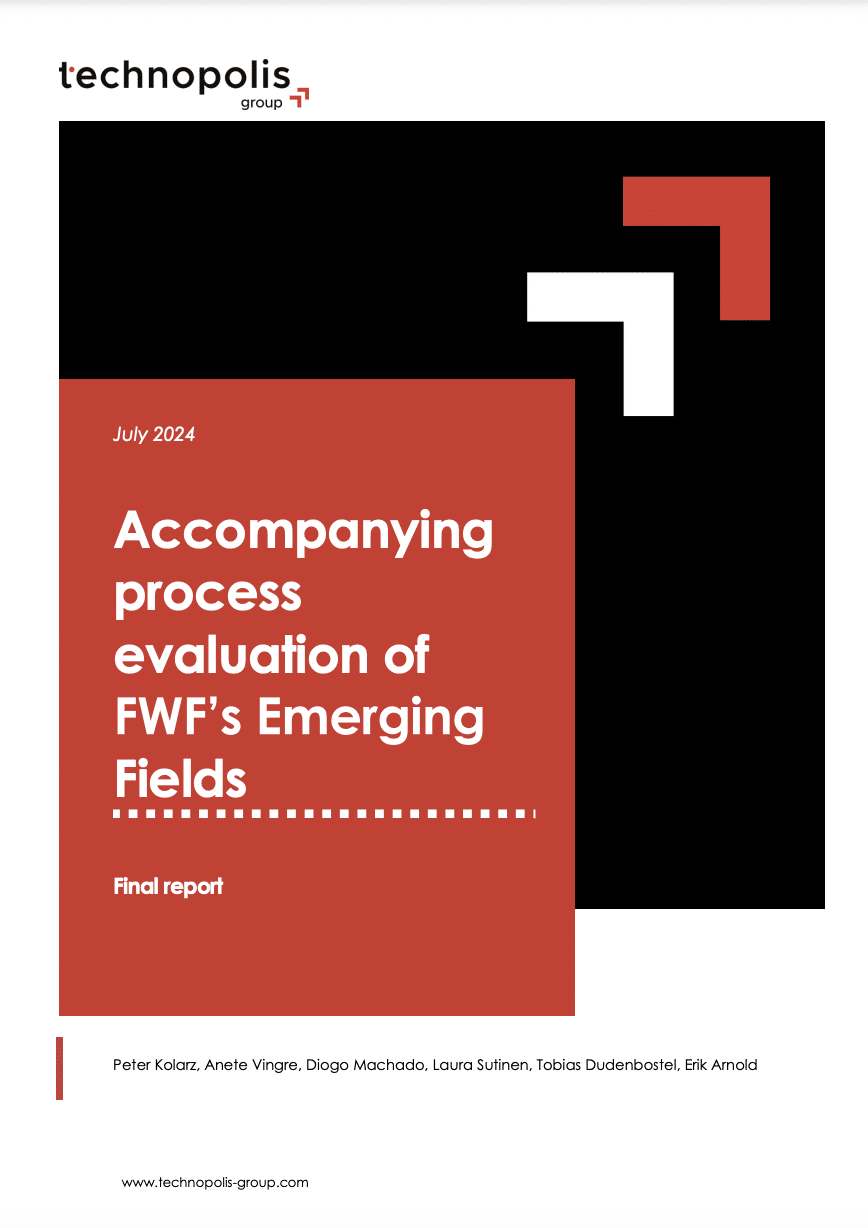Accompanying process evaluation of FWF’s Emerging Fields
Publication date: 12 November 2024 | Report language: EN
The Austrian Science Fund’s (FWF) Emerging Fields (EF) programme seeks to fund particularly original, innovative, paradigm-shifting research. Launched in 2022 as part of the Excellent=Austria initiative, the first call of the Emerging Fields (EF) Programme attracted 45 applications from a range of multidisciplinary Austrian research teams.
Technopolis delivered an accompanying process evaluation of the Emerging Fields programme to critically review the process end-to-end, to identify strengths and weaknesses in its design, and to provide evidence-based recommendations to the FWF and its supervisory bodies on how to improve these processes for the next EF call.
The evaluation approach used mixed methods, including desk review, composition analysis of applications, applicants and reviewers, observation of the hearings and Jury meetings, surveys and interviews and bibliometric and text analysis of applications. The latter used a novel approach to construct novelty indicators and assess the originality of applications. This involved analysis of synopsis and application texts and, based on this, constructing various indicators that indicate novelty in a number of different ways.
The evaluation found that the programme has served a critical signalling and galvanising function. By launching the programme, the FWF provided an opportunity for Austria-based researchers to propose a wide range of highly novel research ideas. The three-stage EF assessment process itself was well designed and works well. We find a small number of challenges. First, applicants were dissatisfied with the feedback provided and what they saw as a lack of process transparency, especially at Stage 1. Second, while the initial pool of applications and applicants was diverse, outcomes in terms of gender and discipline are less so, with no humanities or arts applications being successful and no female coordinators among the five winning awards.







